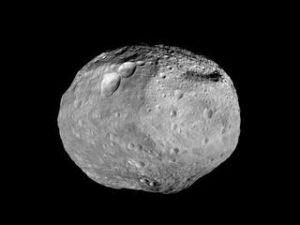
Here at SpaceWatch Middle East we are always looking to enhance the experience and education of our readers, as well as to engage the regional and international space community in relevant debates on issues of importance.
In order to bring such lofty goals into reality, this coming week SpaceWatch Middle East is starting a new occasional feature we are calling #SWMEThemes that explores different aspects and views of particular importance to Middle East and global space communities. Each #SWMEThemes will last anywhere from one week to several weeks and shall consist of opinion pieces, interviews, debates, and other formats that focus on particular themes and issues and that involve the leading experts, policy makers, and industry executives in and out of the Greater Middle East.
To kick-off our new #SWMEThemes feature, SpaceWatch Middle East has drawn on a number of experts and executives to examine the increasingly important issue of the exploitation of space resources, such as asteroids, and what it potentially means for the Middle East.
Starting today, SpaceWatch Middle East’s #SWMEThemes features Dr. Tom James of Navitas Resources, LLP, who writes that the region’s deep heritage and experience in resource extraction from harsh environments, along with recent investments in space programmes, places it in an advantageous position to take advantage of what he believes is a coming space resources economy.
On Tuesday, July 18, Ben Baseley-Walker of Planetary Resources argues that regional countries such as the UAE should follow the lead of Luxembourg and establish themselves as a regional hub for space resource extraction activities and companies through agile policy making and strategic investments.
On Wednesday, July 19, we interview prominent U.S. space attorney Michael J. Listner of Space Law and Policy Solutions, who argues that both Middle Eastern investors and policy makers should proceed with caution when it comes to space resource extraction, since the international legal regime’s ambiguity on the issue could lead to unforeseen effects and circumstances.
On Thursday, July 20, we interview the founders of Luxembourg-based company RamaSpace who aim to provide a platform that will bring the cost of asteroid prospecting down to an affordable level and therefore act as a catalyst for the nascent space resources industry.
On Friday, July 21, UAE space lawyer and policy expert Humaid Al Shamsi argues that the potential space resources economy is indeed an opportunity for countries such as the UAE and Saudi Arabia, but investors and policymakers should also be aware of the legal and political risk involved, as well as the technological and environmental liabilities.
Finally, on Saturday, July 22, we round out our Space Resources and the Middle East #SWMEThemes with an interview with Robert Böhme, the CEO and Founder of Berlin, Germany-based company PTScientists, who are building both rovers and modules for commercial Lunar exploration and potentially resource extraction. Interestingly, PTScientists business and space architectural model involves a unique approach to public-private partnerships with Middle Eastern space programmes.
We hope you enjoy this first #SWMEThemes on Space Resources and the Middle East, as well as our future #SWMEThemes. In August 2017 we plan to run a #SWMEThemes on the Chinese Space Silk Road and the Middle East, and we have other #SWMEThemes planned as well.
If you have an idea for a #SWMEThemes, or would like to contribute to one, please contact us at [email protected]
Thank you, and happy reading!
The SpaceWatch Middle East Team
Original published at: https://spacewatch.global/2017/07/introducing-swmethemes-first-off-space-resources-middle-east/
 SpaceWatch.Global An independent perspective on space
SpaceWatch.Global An independent perspective on space

